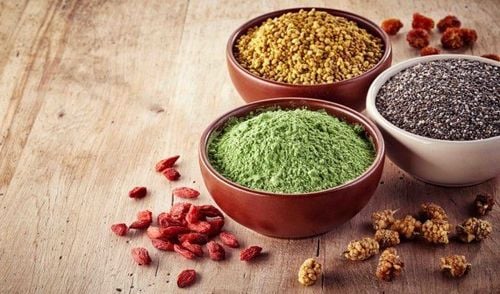This is an automatically translated article.
Spinach and kale are both good sources of many important nutrients that provide many health benefits. Although they belong to different plant families, they are often used interchangeably in recipes. This article will take a look at the nutritional content and benefits of spinach and kale to gauge which is healthier.
1. The difference between spinach and kale in terms of nutritional composition
Both kale and spinach are highly nutritious, low-calorie vegetables that are high in important vitamins and minerals. Both are high in vitamin K, an important vitamin involved in blood clotting and healthy bones. In addition, they are rich in vitamin C, which plays a central role in improving immunity and preventing disease. At the same time, these 2 vegetables also contain fiber and some other important micronutrients such as vitamin A, riboflavin and calcium.
Although providing some similar nutrients, there are also differences between these two vegetables:
Spinach: Provides more vitamin K, vitamin A and folate; Kale: Contains twice as much vitamin C as spinach. Although there are different concentrations of nutrients, in general these are two vegetables with high nutritional value.
MORE: What does Kale make the best?
2. Health Benefits of Spinach and Kale
With their amazing nutrient content, both spinach and kale have impressive health benefits. So what are the benefits of kale and spinach?
Rich in antioxidants - compounds that help prevent oxidative damage to cells and protect against chronic diseases; Has a positive impact on heart health by improving several risk factors for heart disease such as high cholesterol and blood pressure; Contains anti-cancer compounds, which have the ability to reduce the growth and spread of cancer cells (in animal and test-tube studies); Low in calories and rich in nutrients, it is a suitable choice in weight loss diets. SEE ALSO: 5 positive benefits of spinach juice

Rau bina và rau cải xoăn chứa nhiều dưỡng chất quan trọng cho sức khỏe con người
3. Some Disadvantages of Spinach and Kale
3.1 High-oxalate spinach Spinach contains large amounts of oxalate - a compound that binds to calcium in the body, preventing the body from absorbing calcium. Eating oxalate-rich foods like spinach also increases urinary oxalate excretion, which can lead to calcium oxalate kidney stone formation.
Therefore, people at high risk of kidney stones are often advised to limit their intake of foods high in oxalates, including spinach. Alternatively, you can prepare spinach by boiling to reduce the oxalate concentration by up to 87%.
3.2 Kale may contain goitrin Cruciferous vegetables like kale contain goitrin - a compound that can interfere with thyroid function by reducing the absorption of iodine - needed for thyroid hormone production . Disruption of thyroid function can affect metabolism and cause symptoms such as fatigue, sensitivity to cold, and weight changes.
However, recent studies show that eating goitrogen-rich foods in moderation will not cause health problems for most people. In addition, cooking vegetables also deactivates the enzyme responsible for the release of goitrin. As such, if you have a thyroid problem, it's a good idea to cook kale or spinach before eating, and make sure you get enough iodine in your diet from foods like seafood and dairy.
4. Tips on Using Spinach and Kale
There are some slight differences in the nutritional content and health benefits of spinach and kale. However, both of these vegetables are rich in nutrients and are a great addition to a healthy diet.
Therefore, you can add these 2 vegetables to your weekly meal, combined with many other green vegetables such as lettuce, collard greens, cabbage,... These ingredients not only help to diversify ingredients. nutrition but also make your diet more rich and have more new flavors. Here are a few ideas for you when you want to consume these vegetables:
Add kale or spinach to salads; Use kale or spinach in sandwiches, pastas, casseroles,...; Stir-fry kale or spinach as a side dish to accompany main courses; Combine kale, spinach with other vegetables and eggs for a healthy breakfast; Drink a smoothie with kale, spinach, and a few other fruits and vegetables.

Sử dụng rau cải xoăn khoa học giúp đa dạng khẩu phần ăn hàng ngày
Kale and spinach have slight differences in nutritional value and health benefits, but they are both an integral part of a healthy nutritional menu. If you want to improve your heart health, lose weight and boost your immune system, you should add these two vegetables to your diet.
Please dial HOTLINE for more information or register for an appointment HERE. Download MyVinmec app to make appointments faster and to manage your bookings easily.
Reference source: healthline.com












